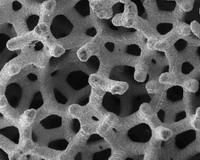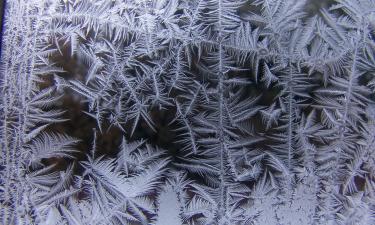Researchers to use animal eggs in creating human stem cells
British authorities will allow to use animal eggs to create human stem cells - studies that have touched off a firestorm of debate about the propriety of mixing the biological stuff of man and beast.

Experts say that such research is critical to unlocking treatments for Alzheimer's, Parkinson's and other diseases. But the studies have raised objections from right-to-life advocates, who say the research is the first step on the slippery slope to genetically modified babies.
The Human Fertilization and Embryology Authority decided, in principle, to permit the research, which involves placing human DNA into cow or rabbit eggs that have had their genetic material removed. Under the decision, each proposed study will be evaluated on a case-by-case basis.
"Having looked at all the evidence the authority has decided that there is no fundamental reason to prevent ... the research," the agency said. "However, public opinion is very finely divided with people generally opposed to this research unless it is tightly regulated and it is likely to lead to scientific or medical advancements."
The cutting-edge research is being considered because of a shortage in the supply of human eggs. But news reports about the research touched off widespread criticism that researchers were attempting to play God - an idea that scientists flatly rejected.
"We're not creating humans with rabbit ears, as much as Playboy magazine might like that," said Dr. Robin Lovell-Badge, the head of the stem cell biology division at the National Institute for Medical Research in London. "What we are trying to do, the intention of this whole enterprise, is to understand the cause of diseases and the cures for it."
The use of material from animals has caused some public concern, while right-to-life advocates fear that such research will lead ultimately to genetically modified babies - even though the research under consideration will allow the eggs to develop for no more than two weeks.
Dr. David King, the director of the independent watchdog group Human Genetics Alert, said supporters of the research distorted scientific facts to defuse criticism.
"The (authority) has ignored the strong and clear public opposition to these experiments, "King wrote in a statement, referring to a public comment period on the issue done ahead of Wednesday's decision.
"People's objections to violating the integrity of nature in this way are perfectly rational, and the science establishment ignores and ridicules them at its own peril," he said.
Britain's government had earlier proposed outlawing the research, though former Prime Minister Tony Blair had said he was not necessarily flatly opposed. Advocacy groups wrote the prime minister to urge him to permit the research to proceed.
Dr. Sophie Petit-Zeman, a spokeswoman for the Association of Medical Research Charities, said that while opponents raise ethical issues, the rights of patients suffering from genetic based diseases should also be respected.
"(These patients) know what the sharp end of the condition is like," Petit-Zeman said. "You have to ask if it's ethical not to do it."
Several scientists have submitted applications for a license to the authority.
The studies involve taking a cow or rabbit egg which no longer has its own DNA and injecting human genetic material. The egg is induced to divide, becoming a very early embryo from which stem cells could be extracted.
The resulting egg contains 13 animal genes compared with some 20,000-25,000 human genes.
But the mixing of human and animal - even on a cellular level - has prompted much debate among the British public, in part because of what many scientists involved in the debate call the "yuck factor." John Harris, a professor of bioethics at the University of Manchester, said the issue has been misunderstood.
"The fear is that (scientists) are trying to breed a human with some other creature," Harris said. "But when you eat a bacon sandwich you take animal cells into your body."
Subscribe to Pravda.Ru Telegram channel, Facebook, RSS!




